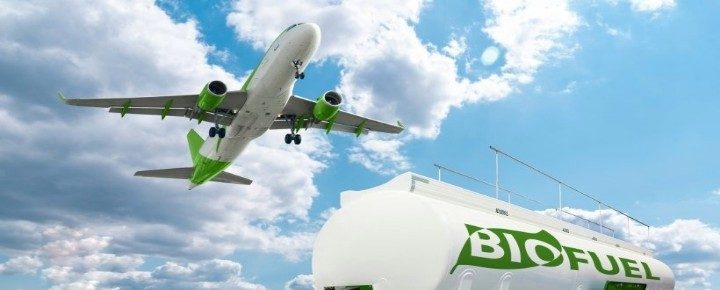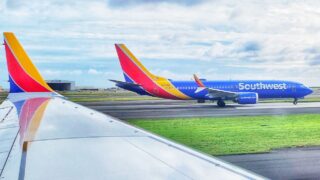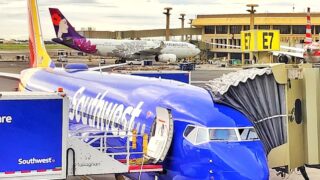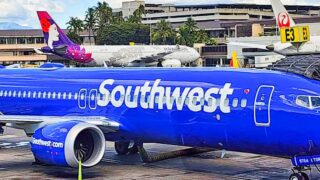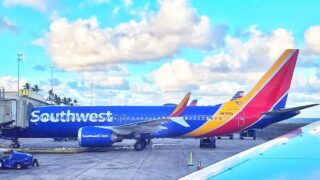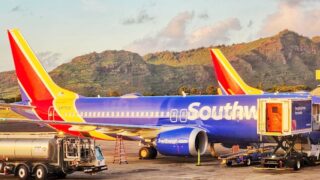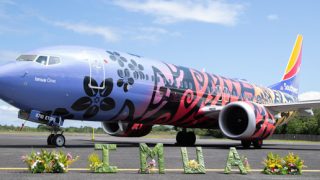Today, following an announcement from Hawaiian Airlines last week, Southwest Airlines said that it is investing in technology “intended to commercialize sustainable aviation fuel (SAF).” As jet fuel consumption increases together with carbon emissions into the atmosphere, airlines are quickly pivoting to get on the right side of this issue.
We’re personally excited to see that electric-powered Hawaii flights appear to be on the way as well. For interisland flights, that makes sense, so long as safety issues associated with both passengers and marine life are addressed. Those planes are expected to come online in the next decade.
U.S. Dept. of Energy plans.
Hawaii-centric Southwest will invest in SAFFiRE Renewables, a company backed by the U.S. Dept. of Energy’s sustainable aviation fuel project. That effort is being funded with a DOE grant matched by Southwest’s investment.
SAFFiRE plans to convert “corn stover,” which is a “waste feedstock,” into renewable ethanol that can then be upgraded into SAF.
DOE said last year SAF could “provide an 84 percent reduction in carbon intensity compared to conventional jet fuel on a lifecycle basis.” Southwest’s investment includes technology validation, preliminary design, and a business plan for a pilot plant.
“SAF is critical for decarbonizing the aviation sector,” said Bob Jordan, chief executive officer at Southwest.
The pilot project is intended to validate the commercialization of this corn-stover-to-ethanol technology, which could lead to a follow-up phase.
“We are extremely excited to be working with Southwest Airlines—they will be a great investor,” said Mark Yancey, CEO of SAFFiRE.
Hawaiian Airlines sustainable aviation fuel (SAF) initiative.
Last week, Hawaiian Airlines and Par Pacific Holdings, which is Hawaii’s largest supplier of fuel, announced they’ll study the commercial viability of locally produced sustainable aviation fuels to replace all or a percentage of traditional kerosene-based jet fuel.
Hawaiian and Par Pacific plan the following:
-Convert two of the processing units at Par Pacific’s Hawaii refinery to produce renewable fuels, including sustainable aviation fuel.
-Support the production of locally grown, oil-yielding crops.
-Explore the feasibility of importing sustainable feedstocks to produce sustainable aviation fuel and other renewable products.
-Convene stakeholders to identify federal and state policies to support Hawaii-based production of renewable fuels.
Hawaiian CEO Peter Ingram said, “this is the first step in what we hope will be a long and productive relationship that reflects both parties’ unwavering commitment to the environment and to these islands we call home.”
William Pate, President of Par Pacific, said, “We’re excited to be partnering with Hawaiian Airlines to innovate and position our business for the future. Aviation fuel represents approximately 40% of Hawaii’s fuel demand, and our work with Hawaiian is an important step in addressing these emissions.”
Importance of SAF.
In 2019, airlines consumed 90 billion gallons of fossil fuels, which pumped enormous quantities of carbon emissions into the atmosphere. In 2009, the industry started to target emission reductions. Those will also come via hydrogen and electric-powered Hawaii flights (LINK) and are expected to come online in the 2030’s.
SAF is a proven technology. To date, more than 300k flights have used a mixture of jet fuel with SAF. The industry believes it may eventually cut life-cycle costs by about 80%.
SAF can come from various sources including used cooking oil, urban or agricultural waste, non-food crops, and more. SAF means that the sources cannot compete with food crops, high carbon stock land, or create degradation to the environment.
Do you have any thoughts about SAF or electric airliners?
Get Breaking Hawaii Travel News
